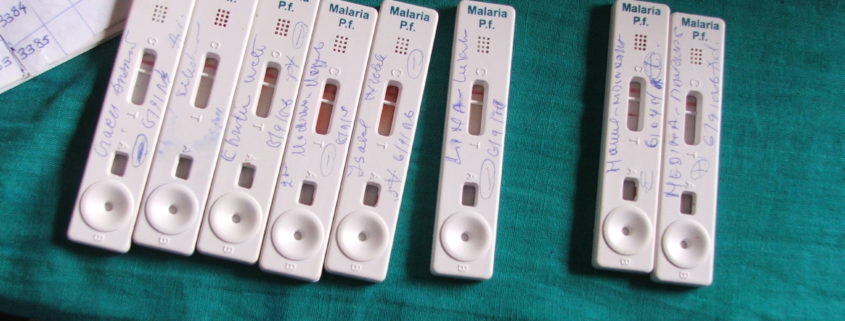
How can research findings inform and improve social and behavior change (SBC) programs? What questions can SBC practitioners keep in mind to help sift through research, interpret publications, and apply lessons learned? Join Breakthrough ACTION for the sixth in a series of online guided discussions following a journal club format about malaria SBC evidence on Wednesday, May 5, from 9:00 a.m. to 10 a.m. (EDT). More information about the article and how you can prepare for and participate in the online discussion is found below.
ABOUT THE ARTICLE
While the World Health Organization recommends all persons with suspected malaria receive diagnostic testing with microscopy or a rapid diagnostic test (RDT), presumptive treatment remains a common practice. In the article Social group and health-care provider interventions to increase the demand for malaria rapid diagnostic tests among community members in Ebonyi state, Nigeria: a cluster-randomised controlled trial, an intervention-control study with a before-after assessment was used to measure the impact of SBC on factors related to the demand for RDTs. Dr. Omale will begin with a brief description of the methods used to measure and compare the effect of social group SBC with and without service provider SBC on RDT-related outcomes. Participants will be invited to discuss results and implications for future SBC programming, data collection, and data use.
MODERATORS
- Donald Dickerson, U.S. President’s Malaria Initiative (PMI), U.S. Agency for International Development
- Michael Toso, Breakthrough ACTION, Johns Hopkins Center for Communication Programs
- Dr. Ugwu I. Omale, Department of Community Medicine, Alex Ekwueme Federal University Teaching Hospital
PREPARING FOR THE DISCUSSION
- Download and read the article.
- Download and use the discussion guide, which has questions to consider as you read and to help you follow along during the webinar discussion.
Photo Credit: PMI


